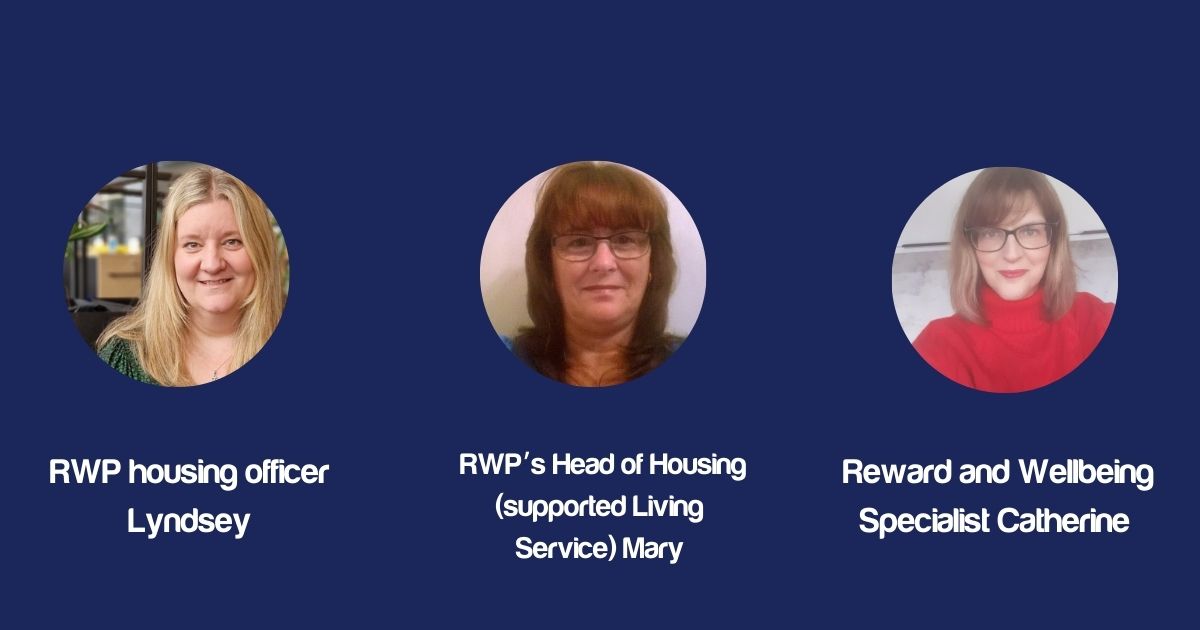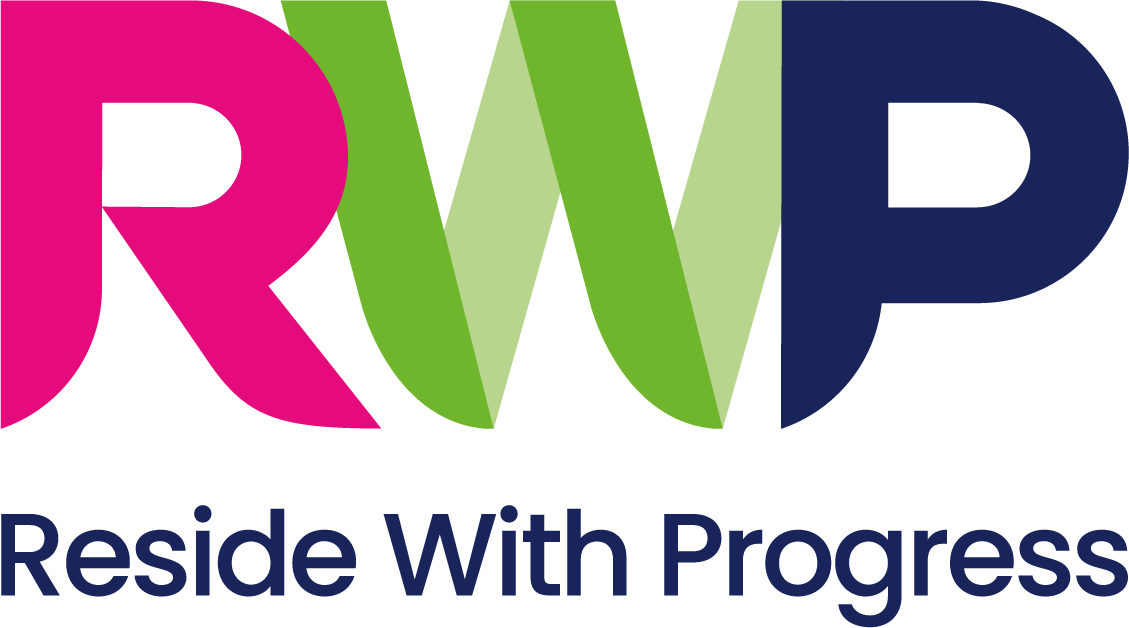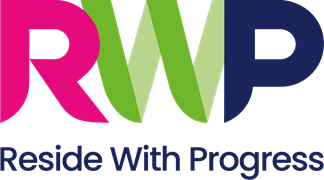
Autism conversations with RWP
Latest news
We recently engaged in autism conversations with RWP’s Head of Housing (supported Living Service) Mary, RWP housing officer Lyndsey, and Reward and Wellbeing Specialist Catherine about what autism support means to them, who they work in partnership with, and their approach to supporting autistic people.
RWP’s Head of Housing (supported living service) Mary shares the importance of listening and adapting when supporting autistic people.
What does autism support mean to me: “Autism can mean different things to different people, it is a lifelong condition, but for me it just means that somebody’s brain may work in a different way to mine, which is unique to them. Autism support means listening to the individual, finding out what their needs are, and adapting. This could involve making changes to the environment, how you interact, how you present information. We need to ask and listen to people, to know what someone’s support needs are.”
Autism training: “I have completed the Autism Awareness training via our e-learning platform. In 2022 my team was involved with the first Project SEARCH interns, which was a great opportunity for us to work alongside autistic people, learn new skills, understand how to adapt tasks, communicate differently, and make small changes that can make a big difference to someone’s life experience.”
Partnership working: “RWP works in partnership with a large number of support providers and commissioners along with families, appointees, and court deputies.”
Supporting autistic tenants: “I would like to think that over the years, I have contributed in some small way in supporting our tenants’ needs through my roles in housing management, tenant involvement, development of new schemes, adaptations, and collaboration with other professionals who specialise in autism.”
Reward and Wellbeing Specialist Catherine highlights the importance of creating an open environment for colleagues, being aware of masking, and providing person centred support.
What does autism support mean to me: “Autism support for me is person-centred and will vary for each individual based on their communication style, preferences, and needs which is the same as for all colleagues. If we can consider our practices to be a bit more inclusive and mindful, for example, in giving people time to process information and respond, that is helpful for all colleagues. Autistic people will of course need more specific adjustments which might be for example around sensory needs, issues with perhaps with noise or smell, or notice when there is going to be a change to plans.”
Autism training: “I have attended webinars on neurodiversity and our online e-learning system has resources on autism awareness. For me, personally, some of the best learning has come from talking and listening to autistic people and there are some great TED talks.
Partnership working: “My colleagues in the People Team along with line managers may become involved in supporting autistic colleagues in the workplace. This could involve at times specialist input from occupational health or a neurodiversity specialist especially where somebody feels that they are struggling.”
RWP housing officer Lyndsey shares the importance of asking focused questions to understand communication needs and preferences.
What does autism support mean to me: “Autism support to me means providing homes and services for a diverse group of people and understanding that no two people are the same and no two people's support needs will be the same. So, it is really important to ask the right questions such as what you need support with, how can I best support you with that, and what would you like me to do to help you with that. We need to make sure that these preferences and communication needs are shared within the Group and with our partner agencies.”
Autism training: “I recently completed some autism training with our charity partner Key and the training was delivered by an autistic person. I think it is really important to have that lived experience within the group and to deliver training. It was really insightful and gave us a really good understanding of some of the barriers and challenges that people can face, but also the diversity within the autism community. Also, why it is so important to ask those questions about what people need support with and how they would like that support to be delivered.”
Partnership working: “As a housing officer I work with lots of different partner agencies such as the support providers who deliver the day-to-day support to the tenants that live in the properties. I also work very closely with our repairs team, our contractors, and with our health and safety agencies. As a housing officer, it is really important to pass on any communication preferences and any adjustments that people might need to make when they are visiting a property and to make sure that the tenants are as comfortable as possible when they have people visiting the property regularly.”

